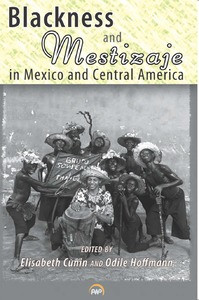The Mulatto Factor in the Race Problem
The Atlantic Monthly
May 1903
pages 658-662
Alfred Holt Stone
[The author of this paper, Mr. Alfred H. Stone, of Greenville, Miss., has made valuable studies of the negro in the Yazoo-Mississippi Delta, and is a member of the Committee of the American Economic Association appointed to investigate the condition of the American negro. — The Editors.]
It is a matter of regret that in organizing the twelfth census it was determined to attempt no separate enumeration of the mulatto element of our population, — using the term in its popular sense, as denoting all persons having any admixture of white and negro blood. It will not do to say that the failure to do this will in any wise affect the solution of our race problem, for to do so would be to regard it as admitting of a sort of blackboard treatment, — the only essentials to success being an array of statistics and their proper handling. But any one who endeavors to go beyond the superficialities of the problem — to do something more than academically consider, from his particular standpoint, its external symptoms — must feel that such data would at least be of value, whatever ideas he may entertain as to its ultimate solution.
Any consideration which fails to reckon this mulatto element as an independent factor ignores what is possibly the most important feature of the problem, and is faulty in its premises, whatever the theoretical conclusion arrived at. Yet we see this constantly done, and of the hundreds of such discussions annually engaged in, it is safe to say that scarcely one is entirely free from this blunder. There appears in them but a single “problem,” and every panacea proposed — education, voting, industrial training, or what not — is made to fit the same Procrustean bed. It is a primal postulate of these discussions that the negro is an undeveloped, not an inferior, race, and to this basic error may be attributed much of the confusion which surrounds the entire subject.
We have too long been guilty of the folly of trying to legislate the negro into a white man, and a pyramid of failures has apparently not yet convinced us of the futility of the undertaking. We have ignored the scientific truth of the ethnic differences among the human family, and have blindly disregarded the fact that the negro, in common with all other races, possesses certain persistent, ineradicable distinguishing characteristics. Foolishly attempting to evade the stubborn fact that the negro in Africa is to-day just what we know him to have been since he first appeared on that continent, we have sought in slavery an excuse for the natural and inevitable resemblance between the native and transplanted branches of the family, and have proceeded toward the American negro as though heredity could be overridden by constitutions and laws. Probably nothing has contributed more toward the persistence of this effort at creating an artificial being than the absolute elimination of the mulatto equation from all our considerations of the subject. It is this that has enabled those who have so long ignored the laws and operations of heredity to point, in proof of the correctness of their theory of race-problem treatment, to the achievements of men loosely accredited to the negro race. Unless through discussion the American people be able to reach a common ground, a century of polemical strife will accomplish no tangible good; and I know of no surer means of reaching a working agreement than by the frank acknowledgment of the mulatto factor in the race problem. I would not be guilty of complicating a situation already sufficiently complex through the introduction of a new factor; I rather hold to the hopeful belief that the consideration of one which already exists, though commonly ignored, may at least serve to simplify discussion, even though it fail to at once point a way out of existing difficulties. When we recognize the very simple and very patent fact that the intermixture of white and black races has given us a hybrid that is neither the one nor the other; when we get far enough along to separate this type from the negro masses in our efforts at determining what may be best for the latter; when the South is willing to lay at the white man’s door many of the failings of this mulatto type and much of the meanness which he too frequently exhibits, and Northern opinion is sufficiently candid and honest to persist no longer in ascribing all his virtues and accomplishments to the negro, — I think we shall have made a distinct gain in race-problem discussion…
Read the entire article here.




